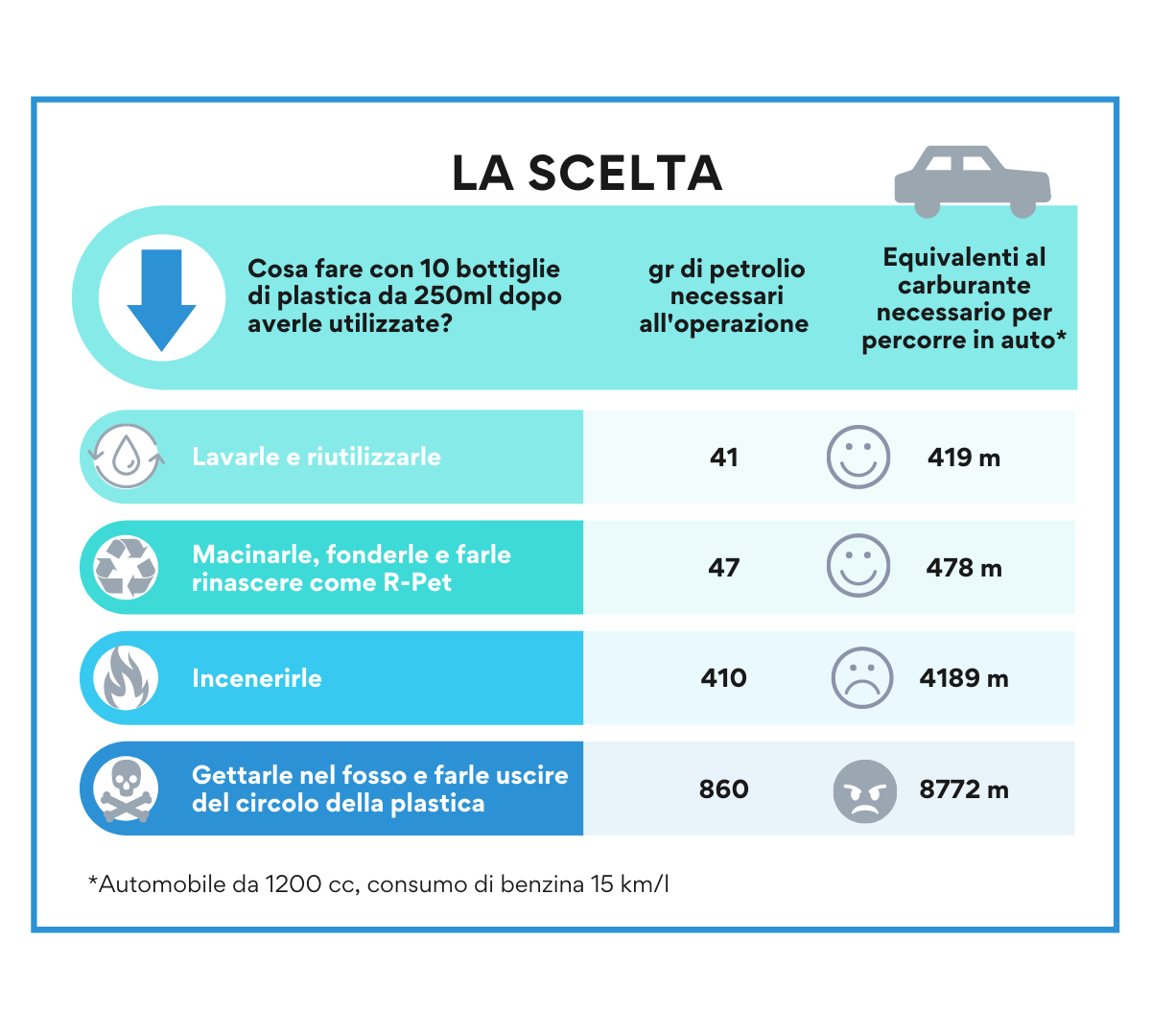RECYCLING AND AND CIRCULAR ECONOMY … WE'VE GOT A LONG WAY TO GO!!!
HOME/NEWS/Recycling and and circular economy … we've got a long way to go!!!

How much does it cost in terms of energy to CHOOSE what to do after using a plastic bottle?
Recycling and and circular economy … we've got a long way to go!!!
This article aims to explain to the reader how much it costs in terms of energy to CHOOSE what to do after using a plastic bottle.
This energy will be expressed in the number of meters a car can travel with the same grams of oil needed to 'dispose of' or revive our bottle. In fact, the more oil that is used in the plastic cycle, the less oil will be available for our trip out!
We were keen to make this comparison as we at Macé use plastic bottles for our juices and are proud to have converted our entire production from PET to 100% R-Pet. However, we think that this is not enough and that creating culture and information is our duty.
What does it means PET plastic or 100% R-Pet plastic?
PET stands for polyethylene terephthalate, synthetic material from the polyester family, made from oil, natural gas and high-quality raw materials.
R-PET is one of the most sustainable and recyclable materials for the circular economy. It is a new polymer obtained through the recovery and recycling processes of common PET, which involve sorting, washing, shredding and melting of plastics.
Wherever possible, using R-Pet means not putting new plastic into circulation but using existing plastic.
But back to the CHOICE; what can we do after we have consumed our juice, drunk our water or finished our bottle of milk?
We can CHOOSE to:
- Reuse the bottle by washing it and using it for another purpose.
- Recycle the bottle correctly and then destine it for R-Pet production (sorting, washing, shredding, melting).
- Recycle the bottle incorrectly and send it for incineration.
- Throw the bottle away regardless of the consequences.
None of these CHOICES are FREE, they all involve an expenditure of energy.
From this table, you can see the consequences of your choice.
The first two options are unequivocally the least damaging to our planet's energy equation, the third is a painful choice and the fourth, today, should not be an option.
